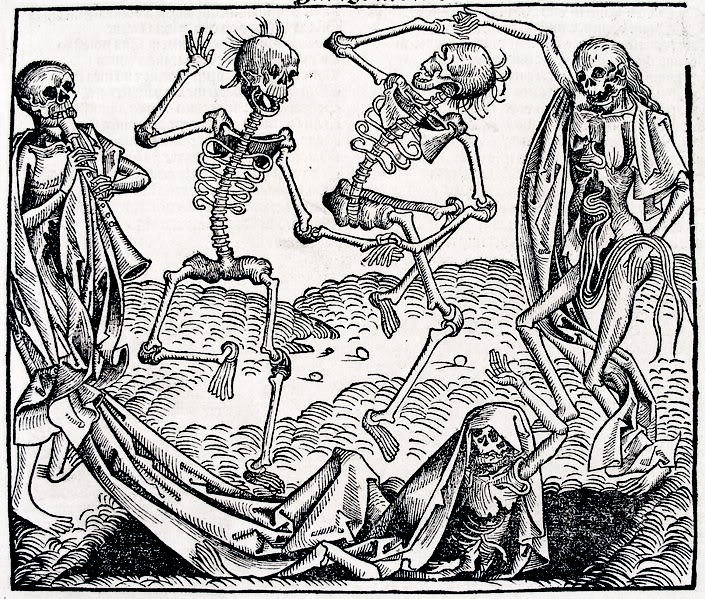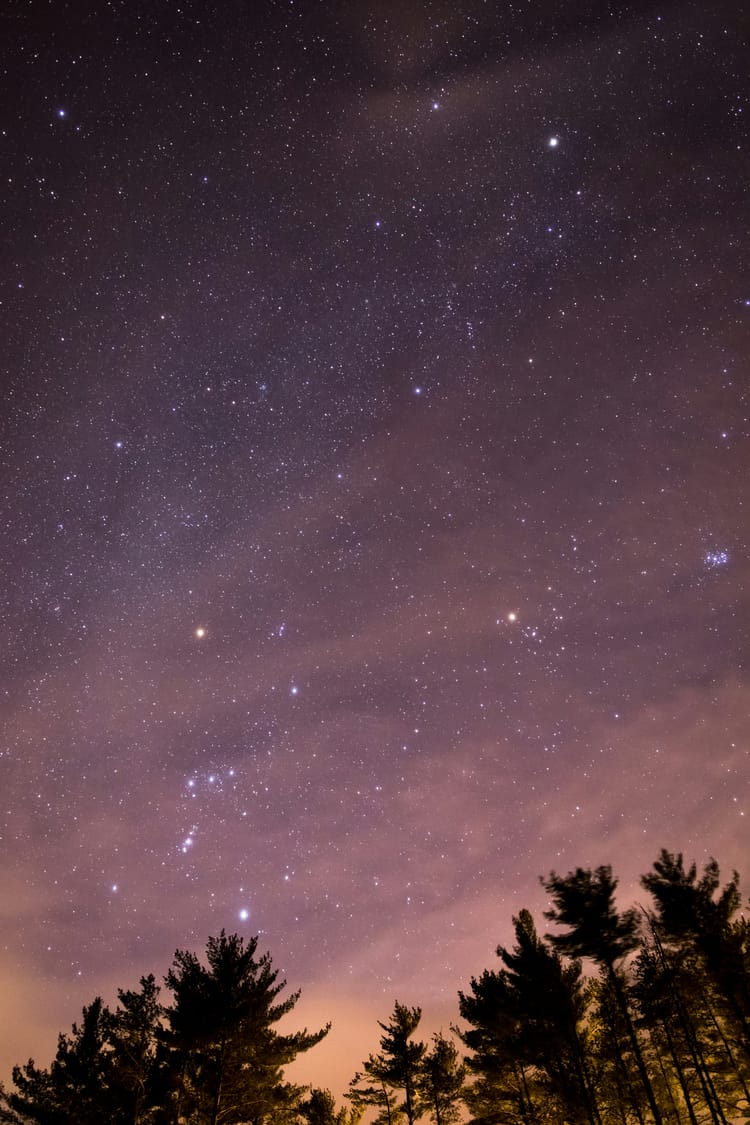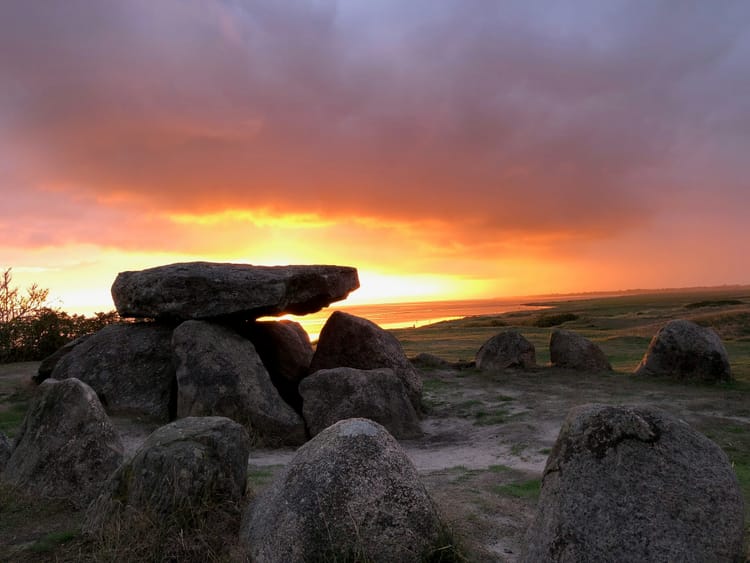Full Moon (Zodiac Series): Animist justice

It's Friday. Hello.
I woke to our first frost this morning. Some plants in the garden are now finished for the season; others, like the autumn carrots and peas, ought to recover and grow more delicious. The other day I saw a plethora of birds feasting on seeds from withering flowers. Our deciduous foliage is not yet at peak brilliance, but it's getting quite close, with blood red finally emerging among the gold and russet. The Pleiades grace the eastern sky in the evening.
Amid this harvest splendor, I continue my own attempts to overcome infertility, and I reckon with grief around the child I carried at this time last year and then lost. I also continue many journeys of erotic (re)discovery, and separately I'm preparing my first publicly offered workshop on a day to day land connection practice that I've been maintaining for the past two years. And quite significantly, I'm nearly halfway through my brief return to school for realigning my day job around a revived and deeply serious calling. Under this identity, I still can't reveal many further specifics around that. However, today's animist focus in the week of the Full Moon may provide an oblique hint.
Within the tropical zodiac of ancient Babylon, we're in the thick of Libra season. Fittingly so: the time of accounting that came at Calan Awst (Lughnasadh) has yielded to the time of reckoning. Here in the northern hemisphere at my latitude, not only do we know what has or hasn't been achieved for the harvest, but now the increasing darkness and chill are starting to kill off the less-hardy plants, even if the true end of the growing season won't arrive until the start of November. As the descendant of diasporic Ashkenazim who is lately trying to better connect with Jewish seasonal observances and occultism as a means of honoring those ancestors — even without considering myself a Jew — I must remark as I have before that I think it's very appropriate for a holiday like Yom Kippur, the day of judgment and atonement, to arise during the season of the Scales.
But today I want to question the language of seasonal reckoning that I have used before. There may be a carceral quality to it, or at least someone could argue as much. If judgment has been passed, do we look toward sentencing? Is a difficult winter our punishment for insufficient diligence in summer? I do not think these things must be true. Simultaneously, to speak of reckoning and judgment without carceral logic I do believe we must operate from a position of relational animism. We must have some framework for justice that honors universal animacy.
Historical & contemporary precedents
I'm anything but an expert on indigenous governance, but it's necessary to start by acknowledging and referencing indigenous justice systems of the past and present for three reasons:
- These are active examples of animist justice, currently in need of defense from various threats.
- Though this anthropological lens is sometimes problematic, it's useful for those of us in a settler-colonial culture to turn to the wide variety of indigenous societies in the modern era and historical record, as a set of examples for how our own ancestors might have once organized their own societies and administered justice when they were still indigenous and practicing animism.
- As David Graeber & David Wengrow extensively addressed in The Dawn of Everything, Enlightenment-era European concepts of justice, democracy, and the rule of law may well be included in cultural elements of the Columbian exchange, as European scholars and political figures were exposed to egalitarian principles and philosophy that indigenous peoples of Turtle Island and elsewhere relied upon and explained to colonizers.
On the one hand animist justice exists in opposition to the carceral system that we live under in "Western" modernity; on the other hand that latter system's aspirational values, which disguise its ugliness, owe an intellectual debt to animist justice in an indigenous context and also if actually upheld are not intrinsically incompatible with animist justice.
Some of the most prominent examples of indigenous justice systems are found through indigenous law such as the Haudenosaunee or Six Nations[1] Confederacy's Great Law of Peace, an oral constitution of 117 articles mnemonically cued by pictograms on wampum belts. Those allied tribes' neighbors and occasional historical rivals, the Anishinaabe Council of Three Fires, have similarly maintained their own complex protocols for intra- and intertribal relations, notably through the doodem (totem) system of animal kinship clans. Further away from where I live, there's the trinity of Inuit legal classifications: tirigusuusiit ("what must be followed"), piqujait ("what must be done"), and maligait ("what must not be done"). All of these examples are found on the same continent, but I know no citation is required to generalize that everywhere in the world, if there's an indigenous community then it abides — or has previously been able to abide — by its own laws of governance. And I also think it's self-evident that where laws exist, a framework of justice is implied.
As I open this post with discussion of indigenous-and-thus-animist justice, I anticipate someone could be concerned about how I'm only mentioning the existence of these systems and am not able to present or analyze their details at length. But I am not trying to deeply educate on this front, only point in certain directions; informed and active members of these tribes would explain things better than I could, and I also do not know what cultural restrictions (including gender restrictions) there are on some subtopics so it's best that I not speculate too much about the wrong material. I really just have to raise these indigenous frameworks since to do otherwise would be neglectful if not obtuse; and crucially, these frameworks point to what I would like to discuss next, which is the possibility of a society that maintains laws but not prisons, governance but not states, and what justice can look like in such a setting.
Before I fully move to that, though, I will also recognize the potential concern that speaking of indigenous governance and justice in glowing terms can ignore the reality that no enormous category like "indigenous peoples" or "pre-modern peoples" has any homogeneous value system — and worse, it can overlook the fact that no such category of people always "gets it right." This is true. Peoples across the whole planet have all been capable of governing themselves poorly and enacting profound injustices against one another or other species. I am not here to romanticize, and one reason I so consistently refer to The Dawn of Everything is because of the book's central thesis that imagining one true way of running a human society creates the conditions of ideological rigidity that now leave the neoliberal world trapped in Margaret Thatcher's that "there is no alternative" to capitalism. We can and should look to indigenous (and pre-modern) governance models pluralistically, not to find one singular ruleset that conforms to noble savage stereotypes.
But if that's understood, now I can move ahead.
Anarchy is not lawlessness
I am an anarchist. I have described myself this way for about two decades, and before that I harbored a worldview that despite a few weirdly authoritarian and adolescent exceptions was fairly anarchistic in nature. The "flavors" of anarchism that I've engaged with have involved something fairly generic and ill-defined, then anarcho-syndicalism (favoring a replacement of states with industrial unions), and now probably what others would call eco-anarchism or green anarchism (wherein the matter of community governance is subordinate to ecological questions).[2] I meanwhile know some written anarchist theory such as the beautiful evolutionary biological studies by Kropotkin. But the labels and the theory are not as important to me as the praxis: the embodied living of a world without nonconsensual, violational hierarchies.
I need to talk about anarchism because it remains critically misunderstood in sectors of the left and neoliberal center alike, and because although the core movement is typically reliant on white, settler-colonial language it's still the bridge — the interface — between all the things I just alluded to above and the things I would like to posit as future animist justice that might be shared in common between remaining indigenous populations and the non-indigenous decolonial efforts I try to belong to. Most of the indigenous thinkers who have influenced me over the past few years also self-describe as anarchists, even if they have their differences with white anarchism.
So what is anarchism, and why be an anarchist?
First, because of the misconceptions and the fact that the anarchist movement carries plural visions for how a condition of anarchy can best be achieved, I must highlight what anarchism is not. It's not a philosophy in support of rampant disorder and violence. It's not about childish shirking of social responsibilities. It's not about upholding individual autonomy at the expense of collective welfare.
Genuine anarchism operates from a premise that humans can effectively and fairly organize ourselves without constant, unwavering, centralized leadership. Anarchy refers to a lack of rulers, but rules persist; within anarchist communities[3] people collectively hold each other to social standards, and they participate together in deciding what those standards should be. Roles that carry special responsibility may still exist, but they aren't given excess privileges, and they're either rotated regularly among individuals, selected by consensus or majority vote (depending on preference), or some combination. Over time — and this carries some overlap with what I understand of many indigenous governance models — longstanding and long-lived members of the community may hold a kind of moral or intellectual authority that qualifies as "elderhood," but this is not the same thing as a state, whose existence is upheld through material borders, the right to use violence (including execution) and deprive other people of their rights, and so on. You can ignore an elder of this kind, but the consequences are the weight of that harm to your relationship and the possibility that you really did make a mistake, which will cost you in its own way. If an elder consistently gives detrimental advice, in turn, people can stop listening to them.
There is no stopping social mechanics from allowing people who act in bad faith to cause problems, which means that an anarchist society is not guaranteed to be perfect or free of injustice. However, it allows for people to fumble through life on more even footing, trusting each other better because there isn't some prisoner's dilemma to pay attention to. It is the actual rule of law, rather than the rule of man dressed up as the rule of law. The rule of man has never served us well. And contrary to philosophical arguments that humans have always needed other humans to make them follow laws, when a law is good enough it speaks for itself.
What, then, are good laws? And does justice emerge automatically from them?
Justice flowing from law, law flowing from animism
In my opinion, a good law produces a regenerative effect. If someone has been wronged, the law gives them immediate recourse to feel whole again, and to heal the community around them, but this happens through productive reparations rather than through classifying someone as exclusively and essentially "a criminal" whose value is now erased. This does not mean all transgressions must be forgiven or forgotten, nor can the law account for people who show themselves to be so unwilling to participate equitably in a community that they are basically self-selecting out of it. But a good law encourages mediation where possible and mutually-agreed separation with respectful behavior where not; and if a transgressor must "lose" something, it's one of their privileges, not any of their innate rights. If someone truly self-selects out of community through doing constant and unaccountable harm to others, they become less protected, but only because they already see nothing in that community they could freely have that they wouldn't rather take by force; and very importantly, outlaw or ostracized status, though potentially lethal in the long run, does not confine someone in the same manner as a prison, nor does it give any one person or set of people the automatic power to kill you. It is simply a status that declares, "We see the law does not apply to you," and lets natural causes and effects have their way.
A good law's regenerative quality also extends beyond governing what harms people can or can't do to each other directly. Throughout human history, laws have also governed what people do in areas of life that superficially involve just the individual but create cascading effects for the other humans and-more-than-humans around each of us. Hence laws around land rights ("ownership" in colonial terms), trade, practices around currency/business (although I would of course rather see a communal gift economy), family obligations, and many other things — even the act of dying. Sometimes these laws are not good laws. But if/when they are good, they balance the need for autonomy and collective responsibility together.
Again, these laws should not need enforcement figures behind them. So when I now say that justice looks like these laws being upheld, I simply mean settings of people either abiding by the laws, or of people equitably discussing a failure to abide by a law and reaching a decision about how to proceed — a decision that all parties feel enriched and supported by. No cops, and the courts (if any) don't look how we're used to in modern media.[4] Here, justice flows from the law.
And in my view the law itself must flow from animism. By recognizing that everything around us is a subject or a potential subject, even if it isn't conscious or sentient in ways we can understand, any law created has the opportunity to account for the rights of not only humans but also our surrounding environment. And if that environment, also known as the more-than-human world, has its rights accounted for, it becomes preposterous to deny certain humans of their own rights in that context. By engaging with beings beyond ourselves as honored others within an interconnected system, this also reminds us to engage with each other as honored comrades who also form part of a subsystem.
Taking all these considerations together, animist justice itself is then essentially the maintenance of right relation. This may look many different ways and carry inherent cultural variability; but it means people are not good-doers or evil-doers, and even the deeds themselves are not necessarily good or bad, but judgment is given to the deeds' effects and to what must be done to correct damage incurred upon The Great Whole.
In that sense, there is no functional judgment being passed now in the midst of Libra season. No punitive sentence. But as summer is laid fully to rest and we draw inward, justice is occurring, flowing from the land's law of rest after labor — and in starting to rely on our harvest stores, we are certainly reminded that we are at the Earth's mercy. That elder we ignore at our utmost peril.
[1] Also colonially known as Iroquois.
[2] I am only haphazardly comfortable with this label, though, because while it's a good definition, I often sense connotations of white veganism and white animal rights activism. As this paid post may elucidate, I do not comfortably relate to those movements, even though I do have fairly radical views about animal intelligence, eat minimal red meat, and support sabotage measures that broader eco-activist groups like Earth First! should be entitled to use.
[3] Archetypally speaking, I'll note the size of such a community is small, but there is no end to debate about exactly how far this can scale. My own stance is that equitable decision making is absolutely impossible to perform with billions, millions, or even just hundreds of thousands of people all at once; however, this does not rule out maintaining a global federation of communities with shared values that retain baseline autonomy but abide by laws of the earth that are self-evident to animists.
[4] Although I have a certain soft spot for Anglo-American courts, as their procedural format and tradition of common (case) law coexisting with civil (statutory) law are not only relatively unique but also have descended from pagan English legal customs, whose modern animist potential I am only just beginning to explore — but it allows for a more fluid and timely interpretation of law without waiting for changes in statutes or constitutions.
Thank you for reading. I am glad I could write a more substantive post this week. Next week, I have a timely examination (for myself) of carrying and removing physical stress in one's body. After that, I hope to offer a post that I've promised some friends and acquaintances on social media, involving a truly deep philosophical dive into the nature of consciousness — specifically in dialogue with Siin of Sigillo Sacro.





Member discussion